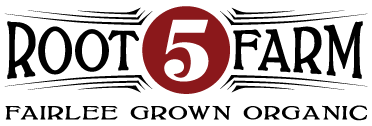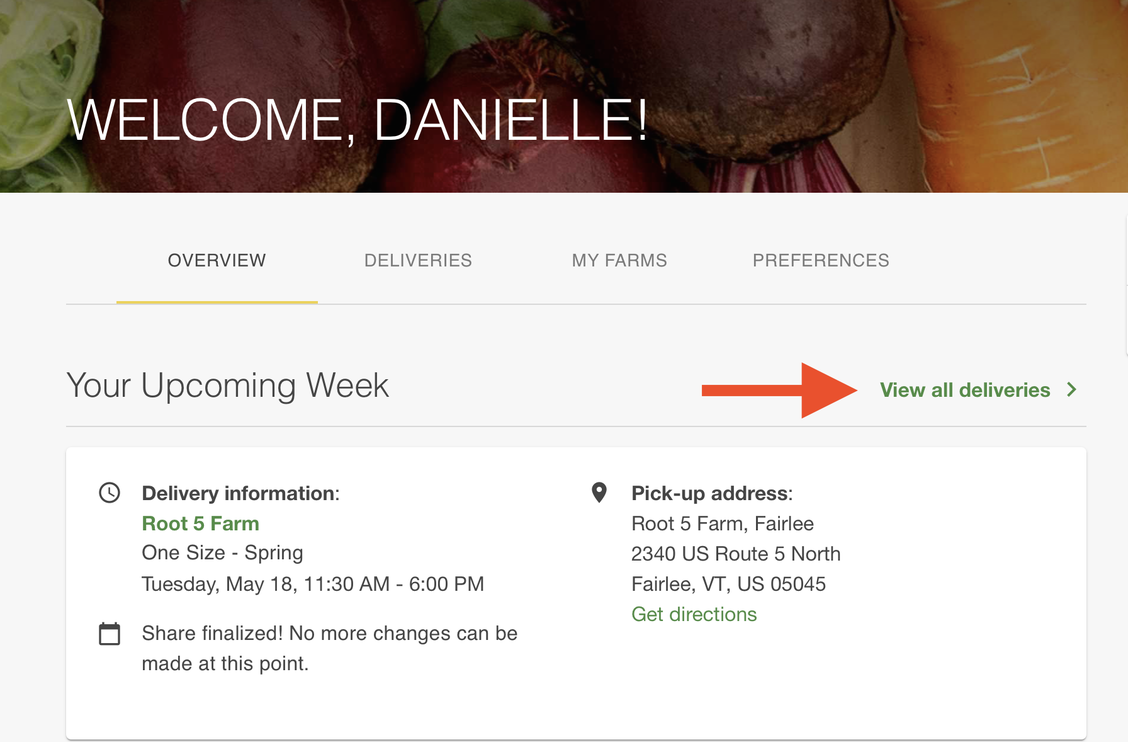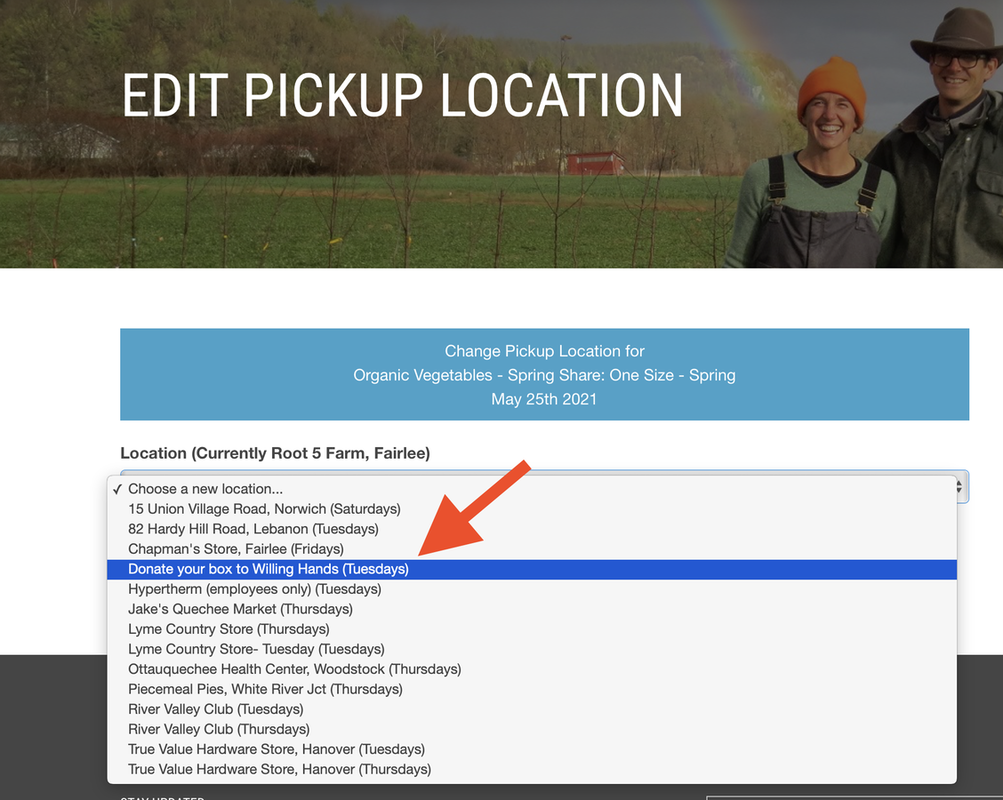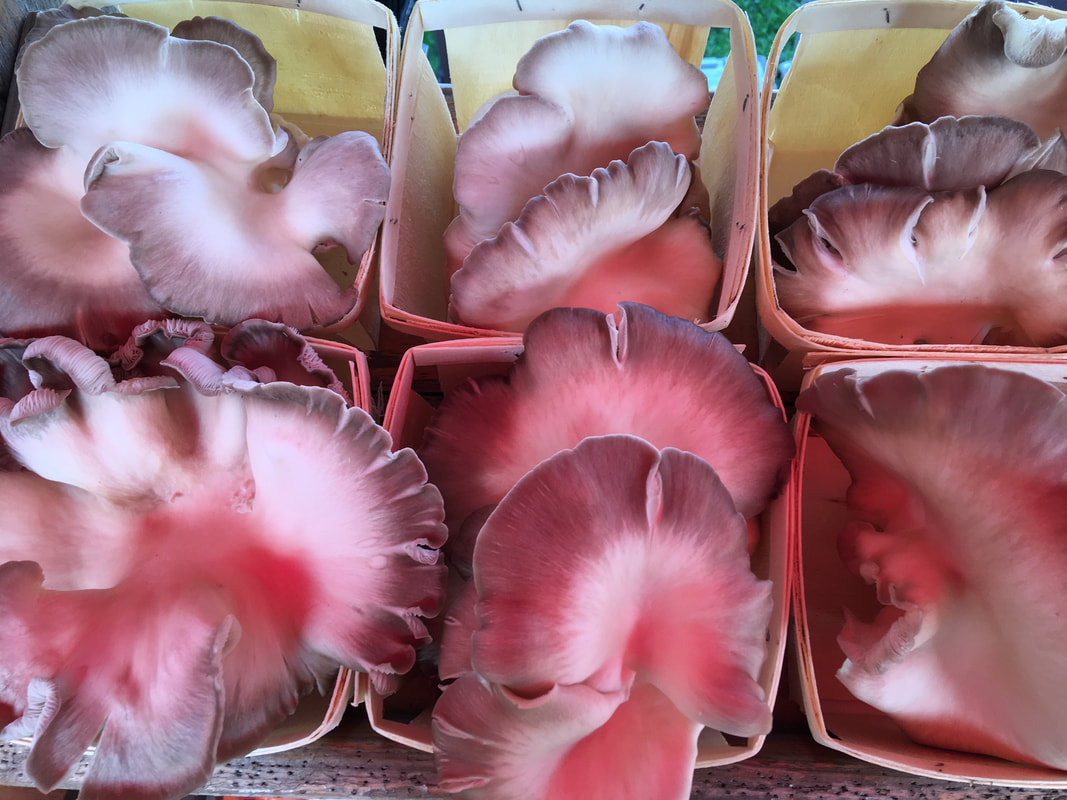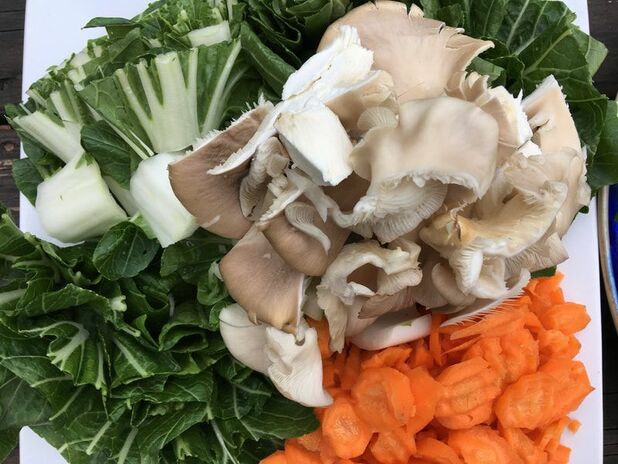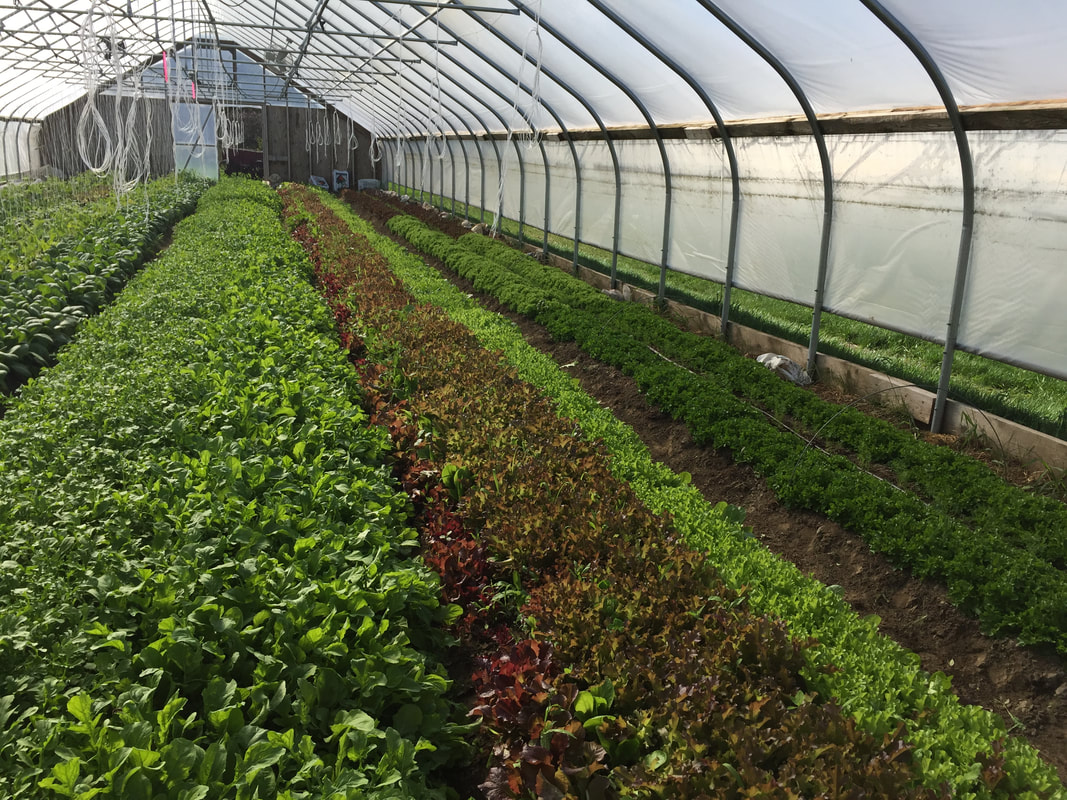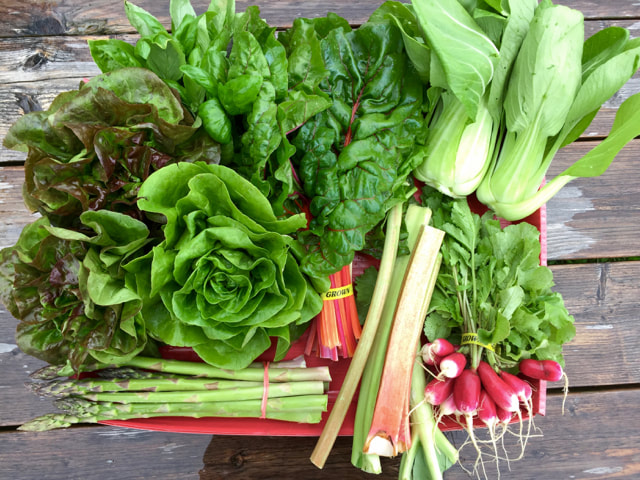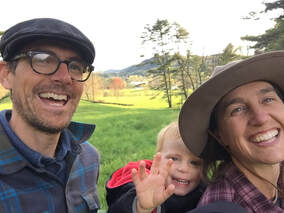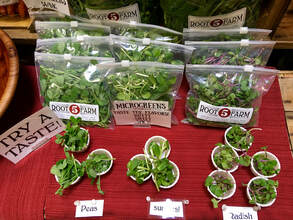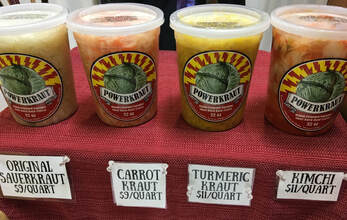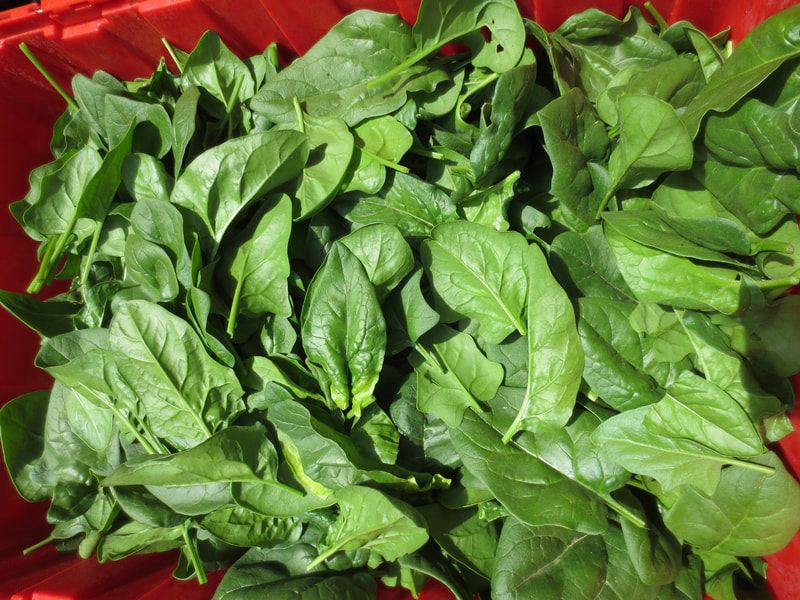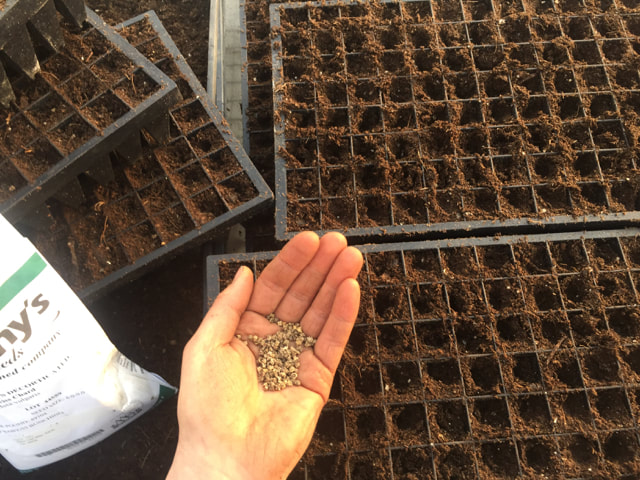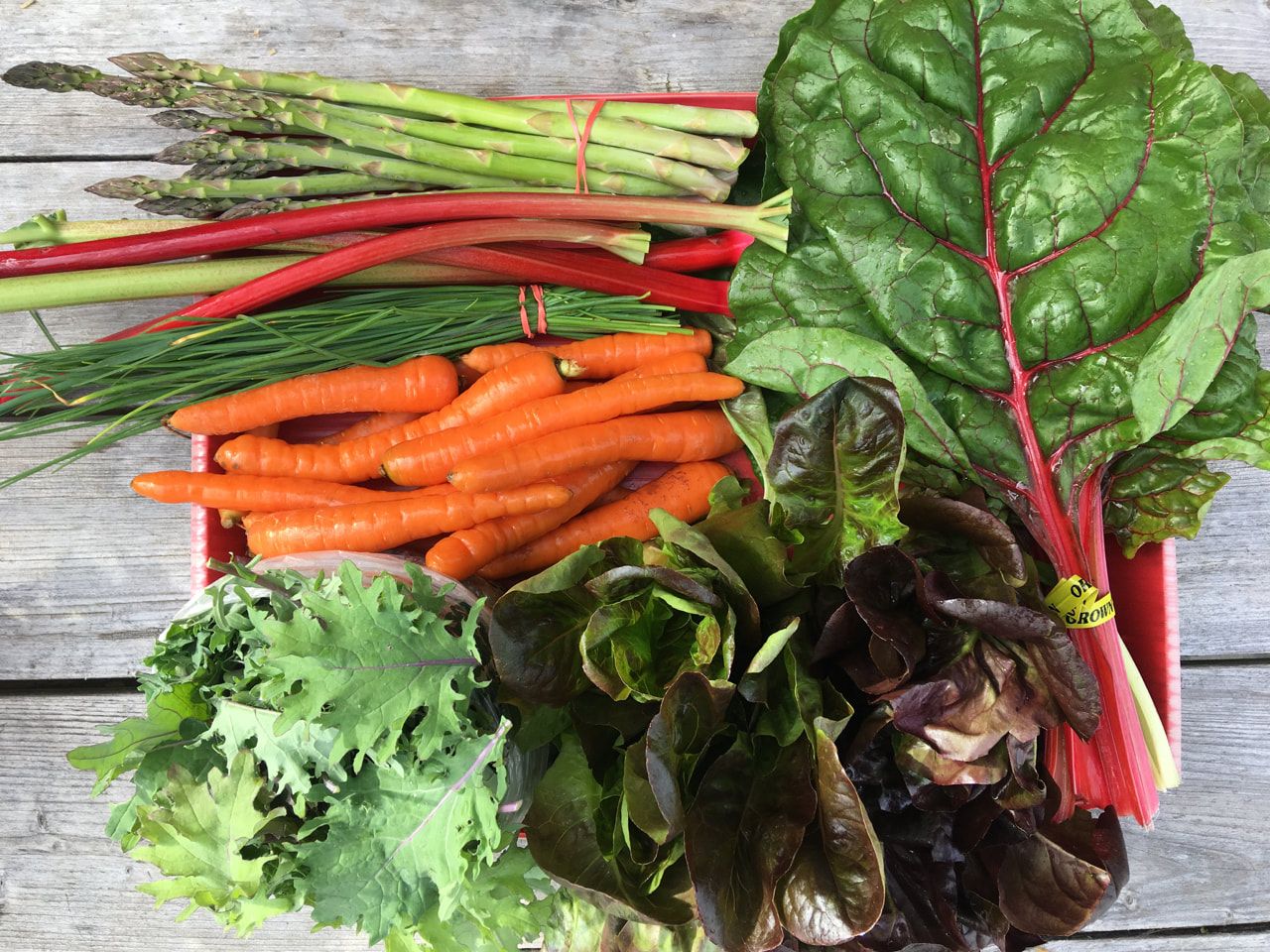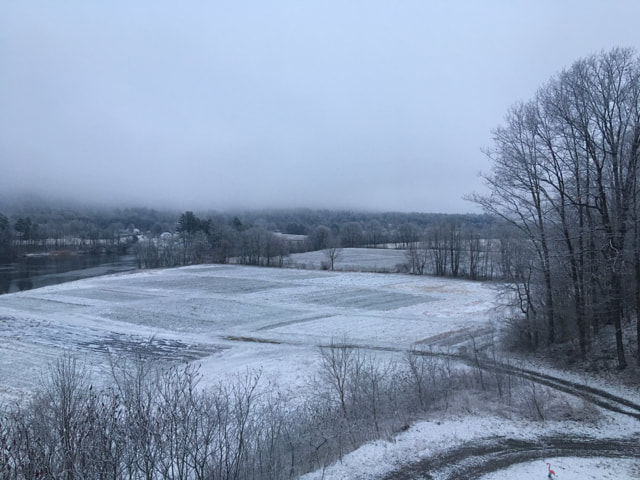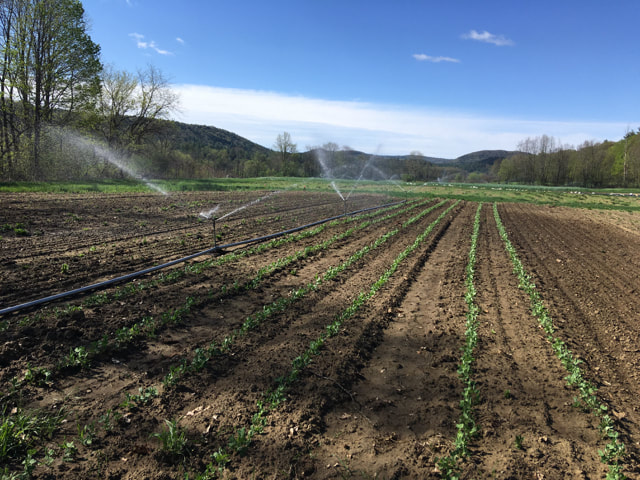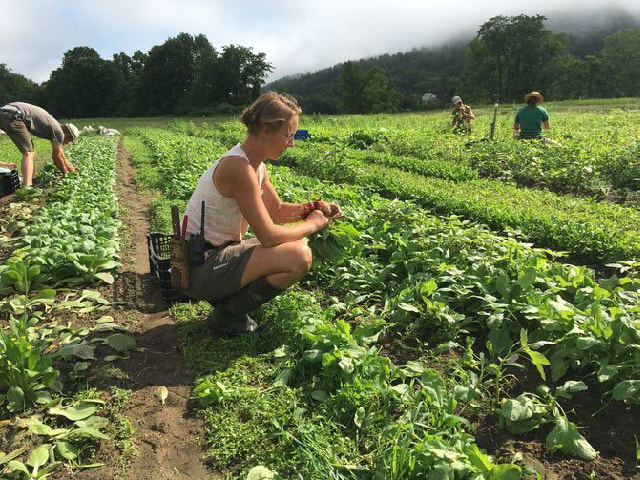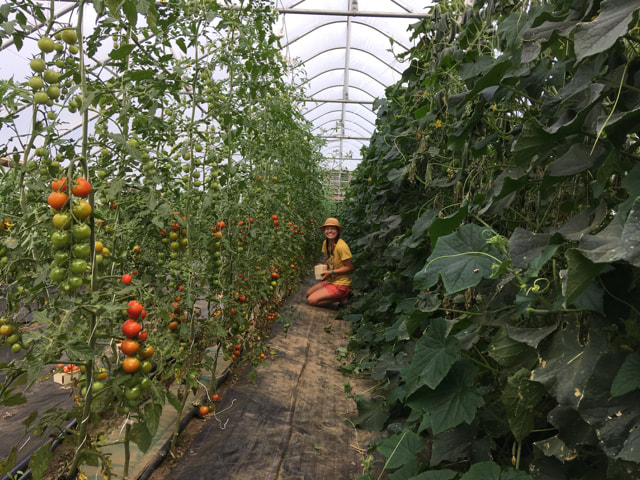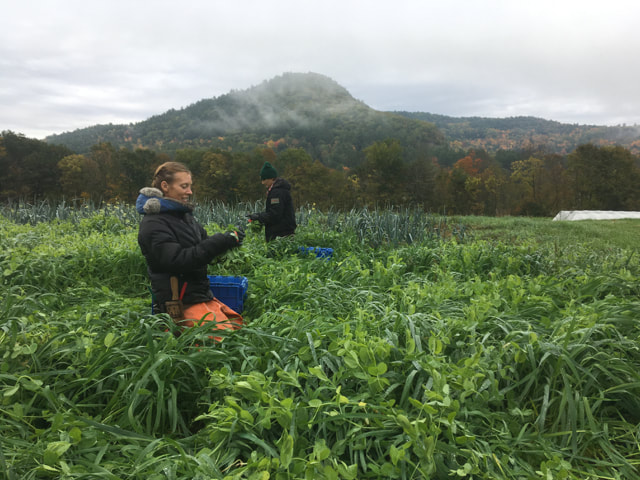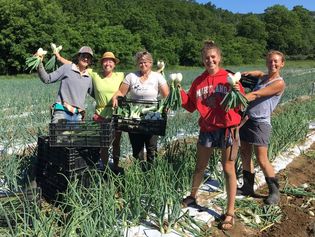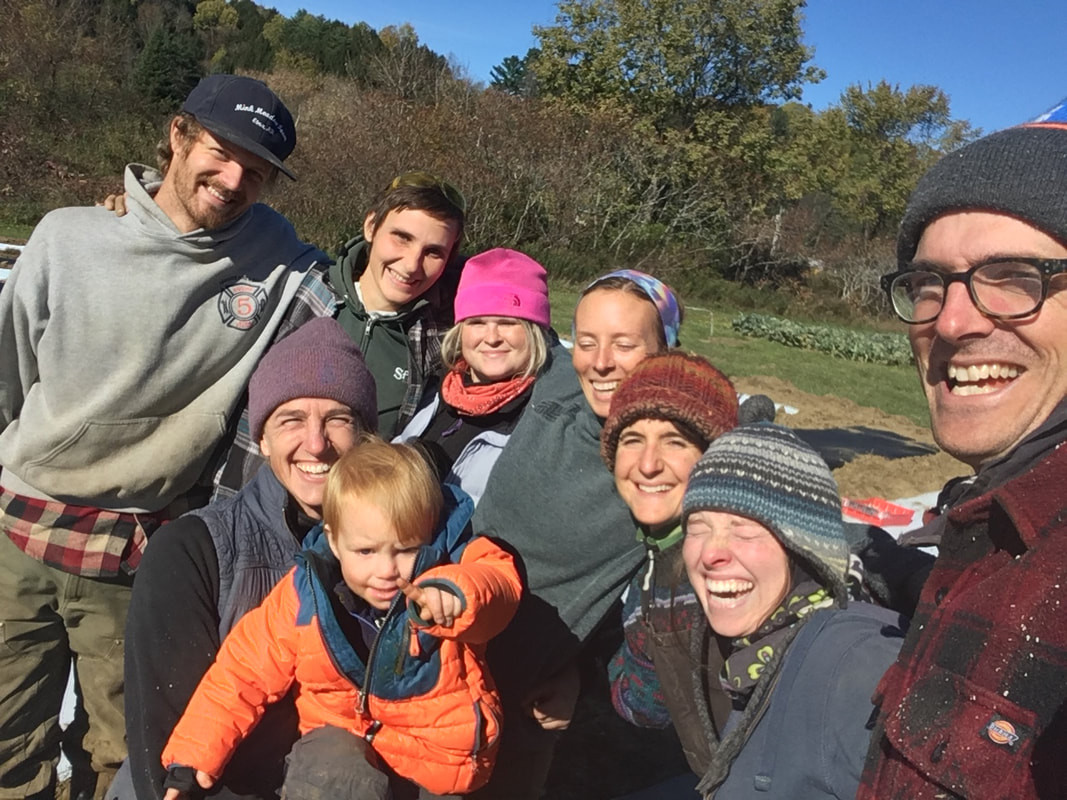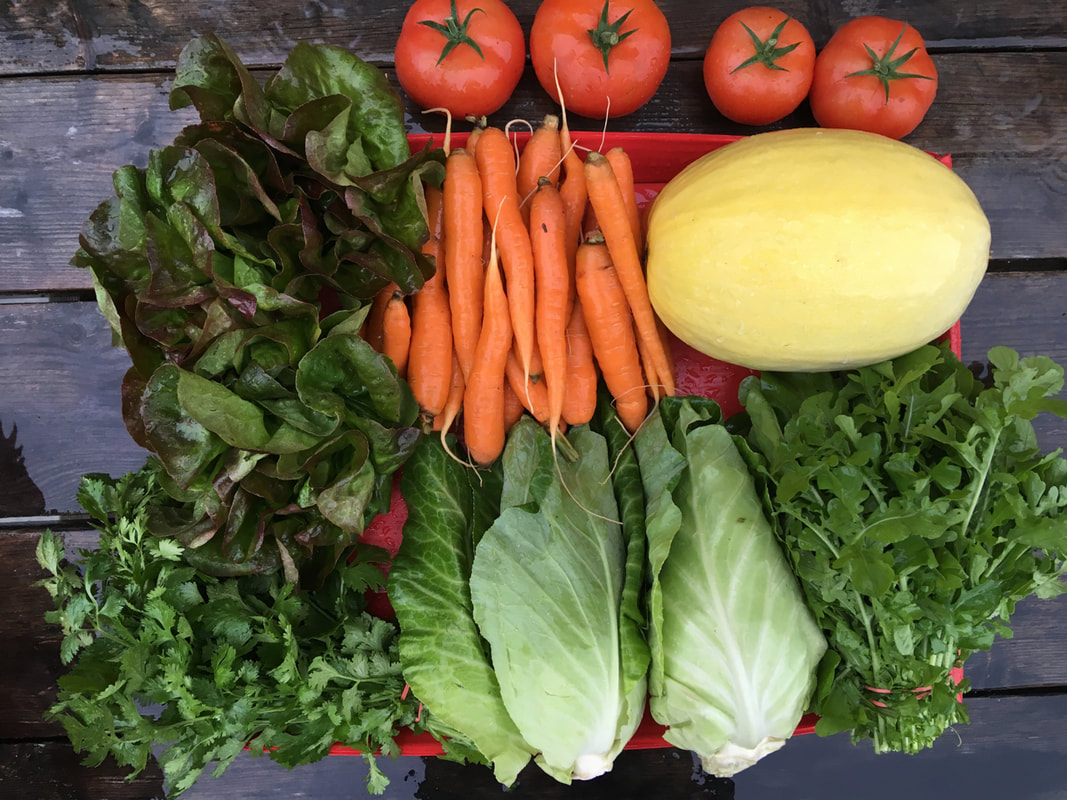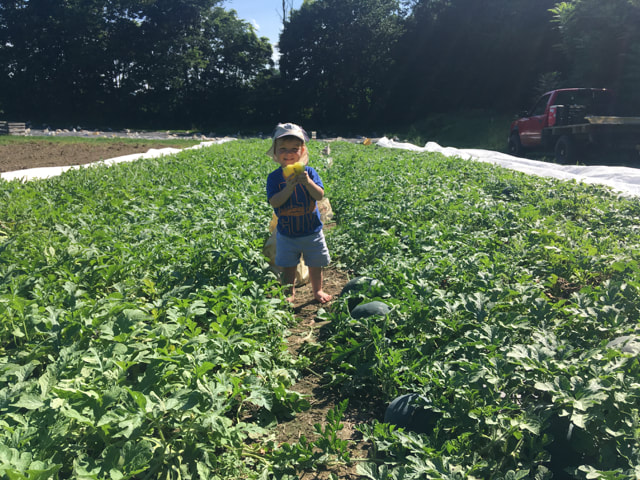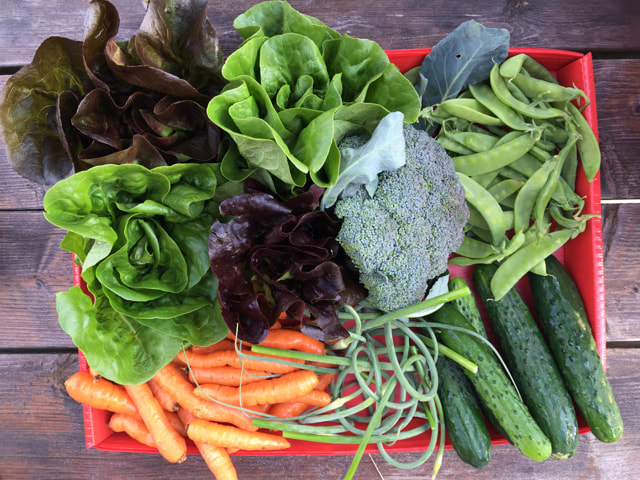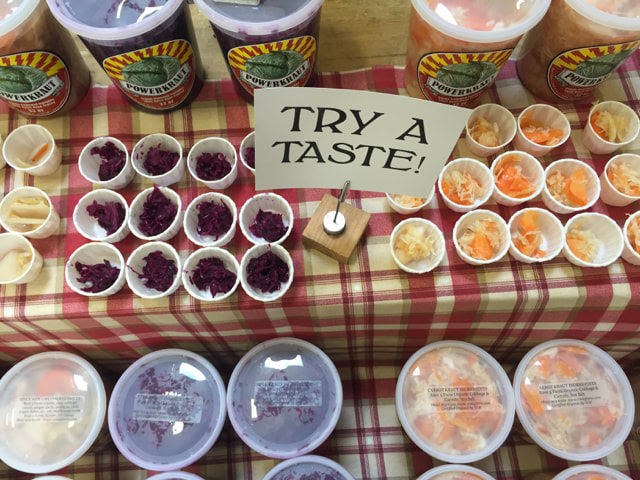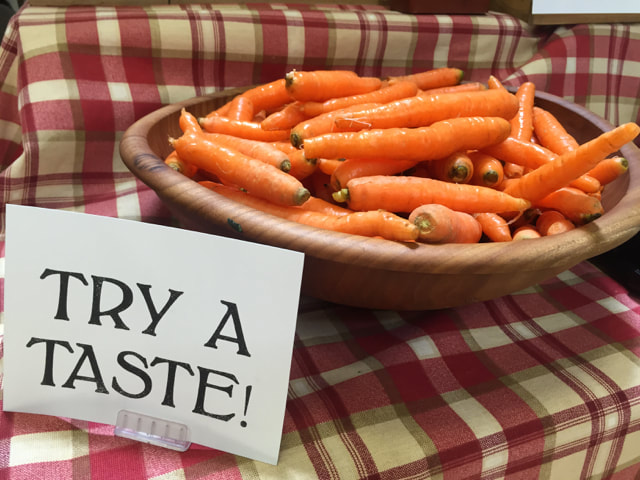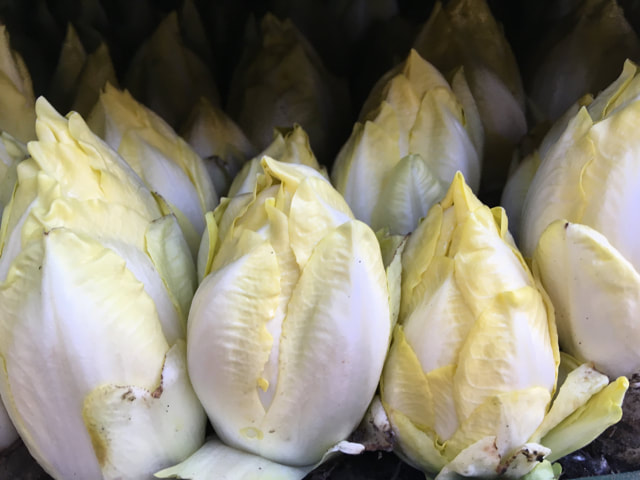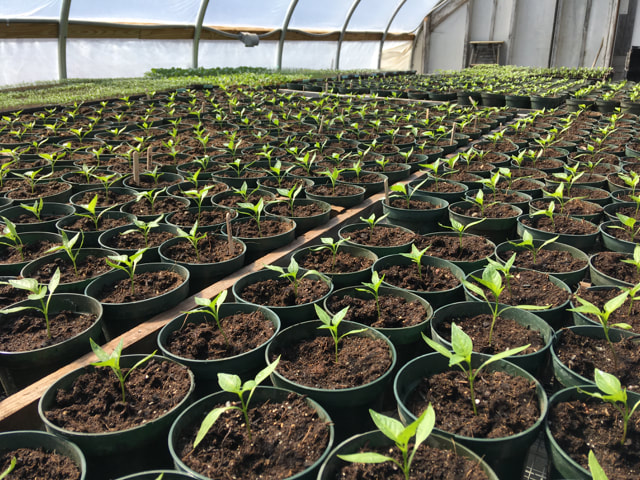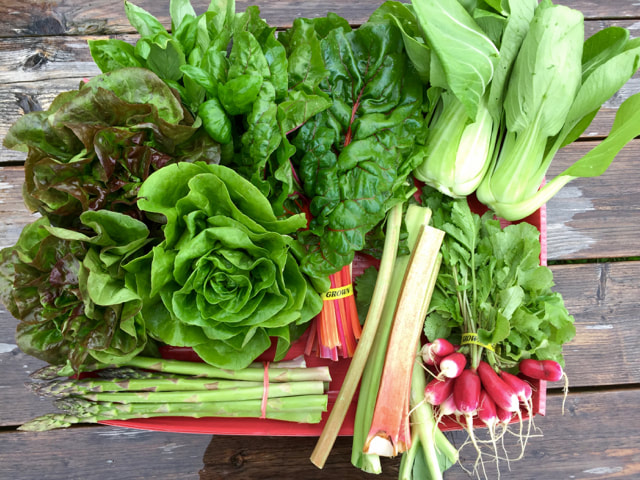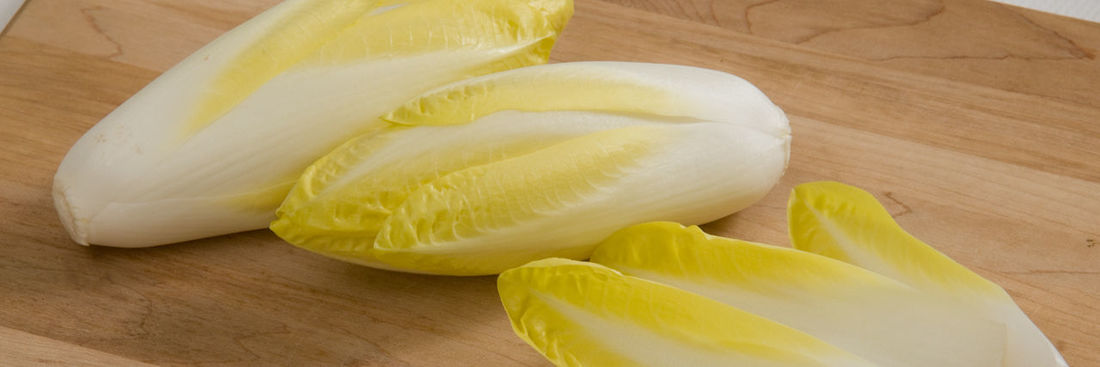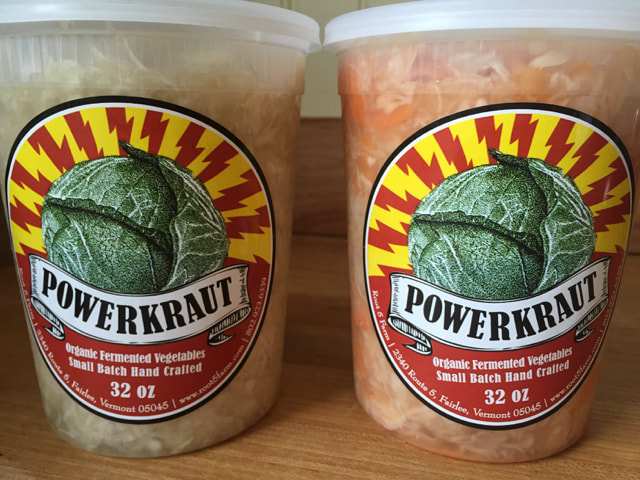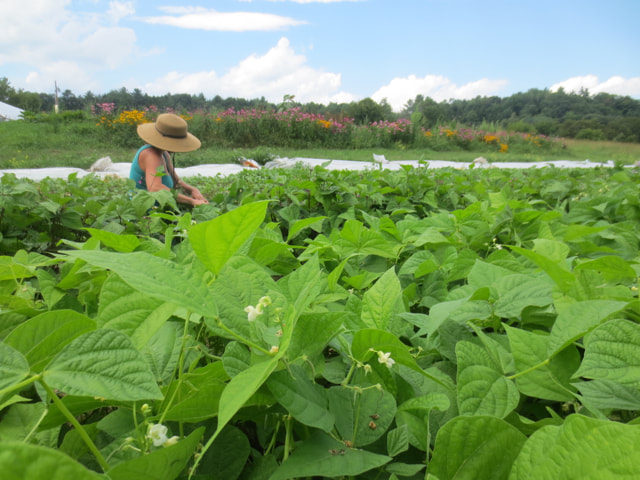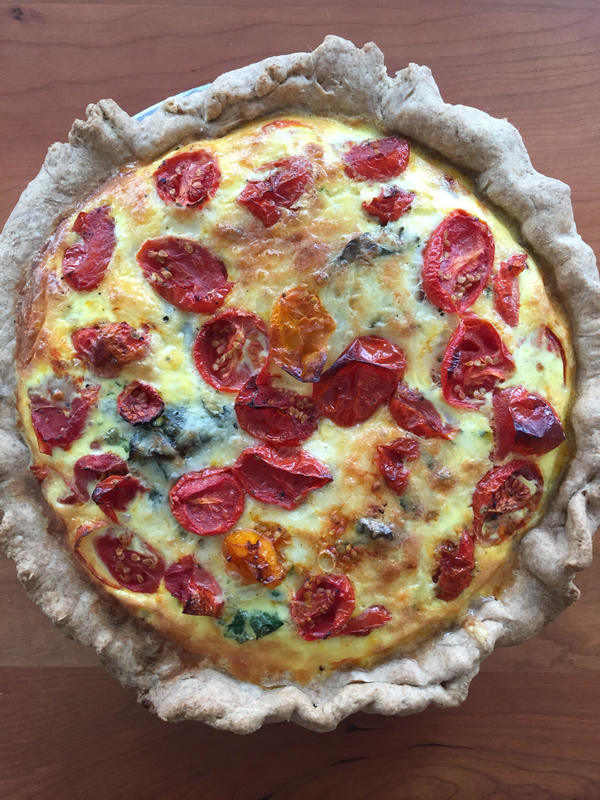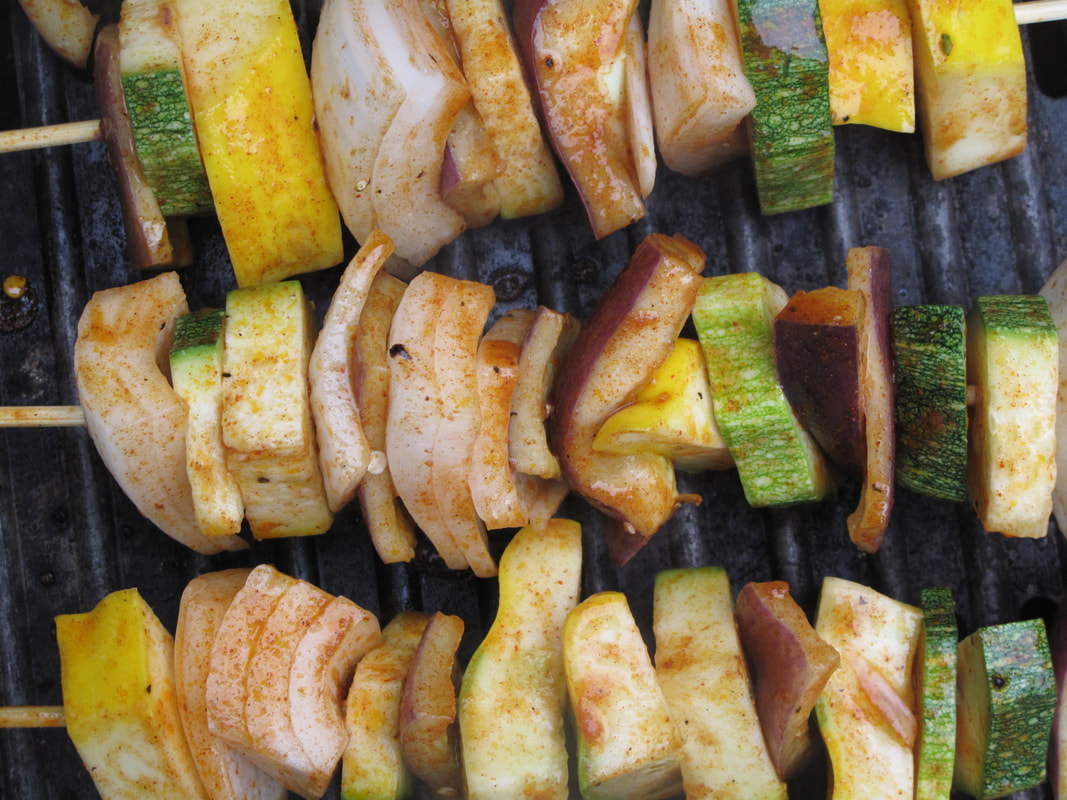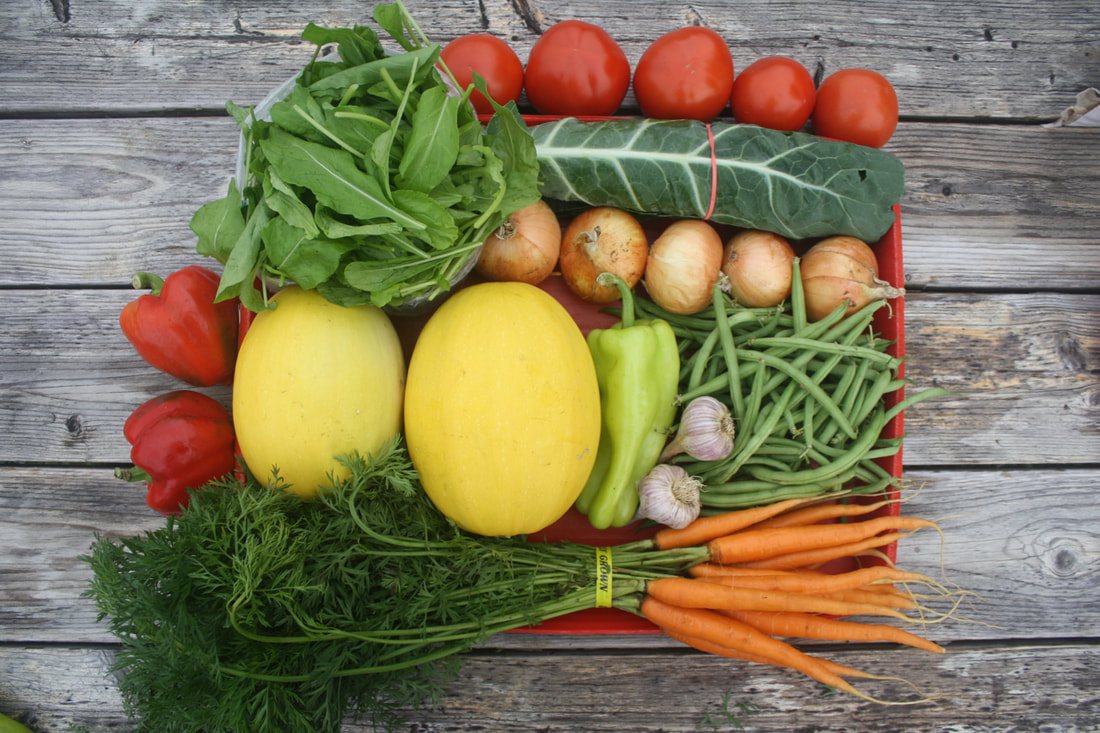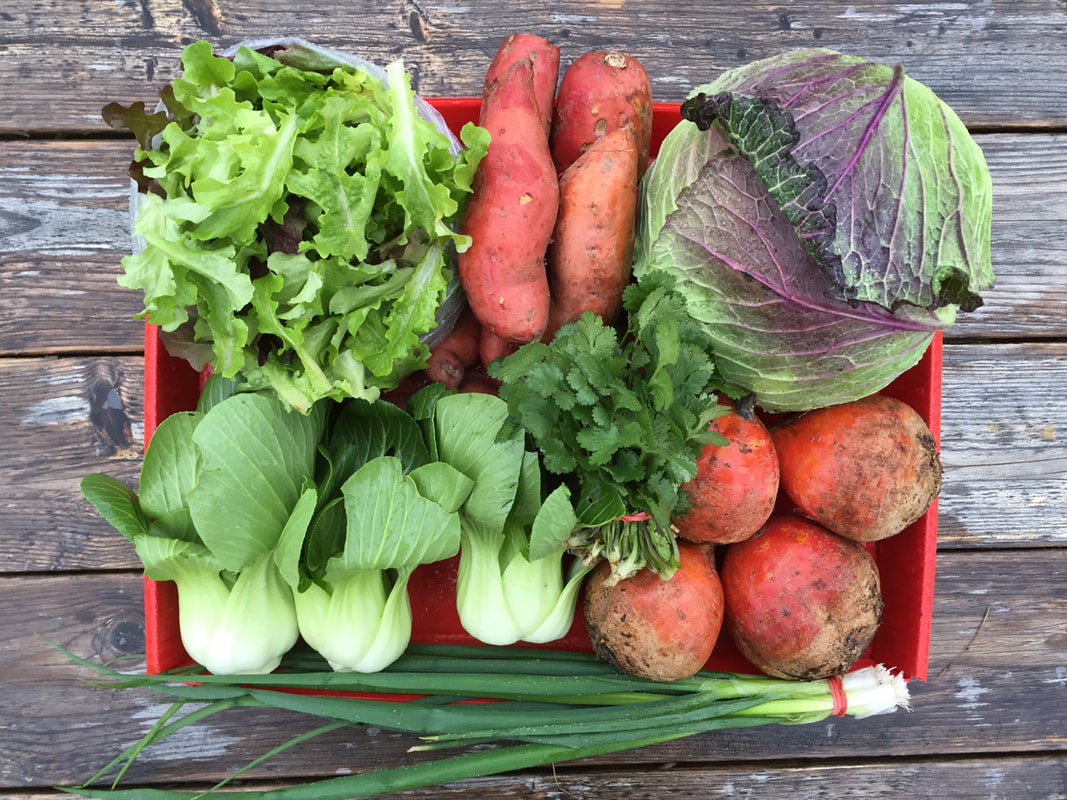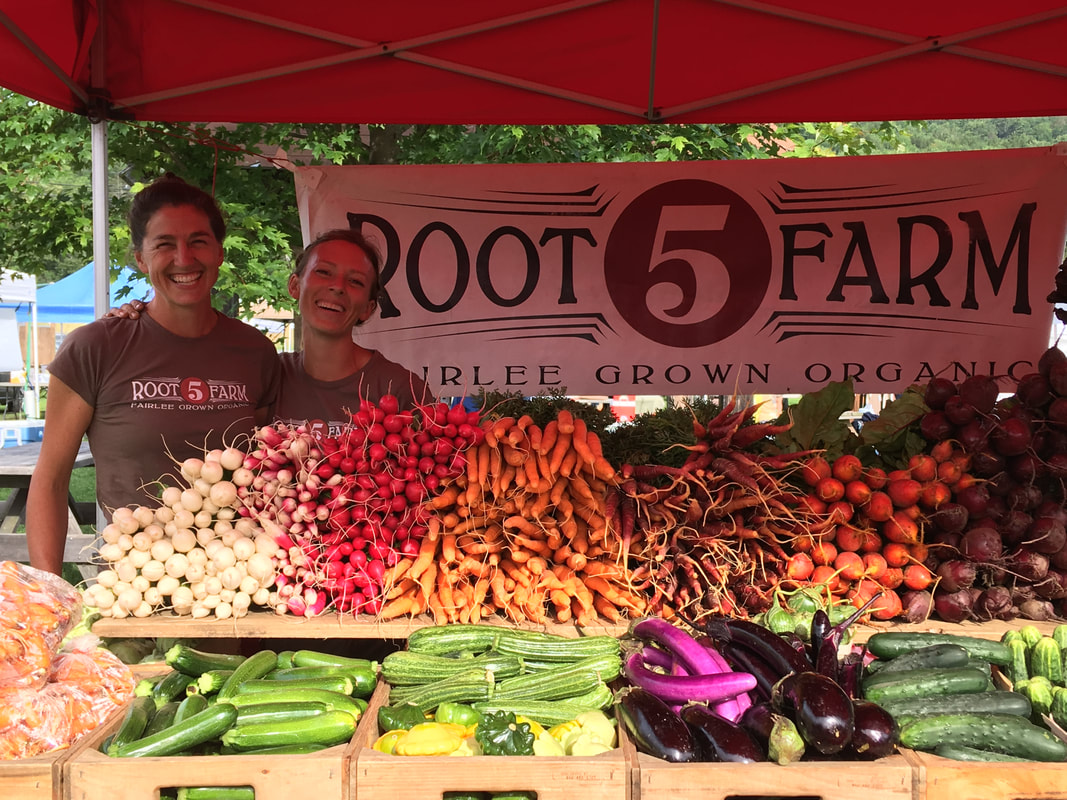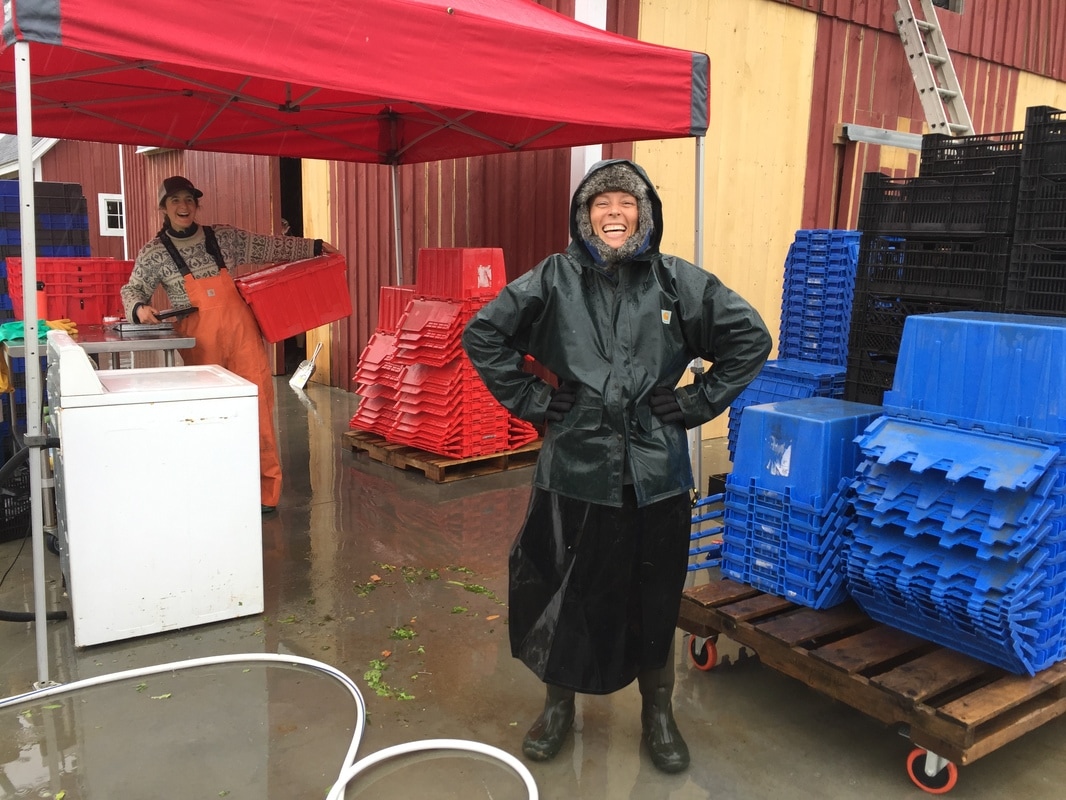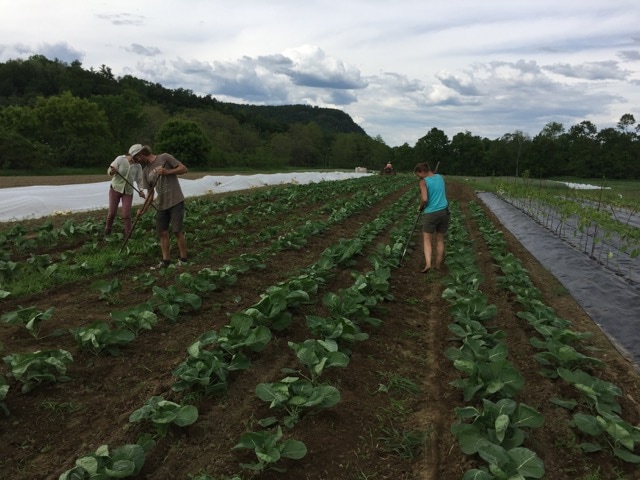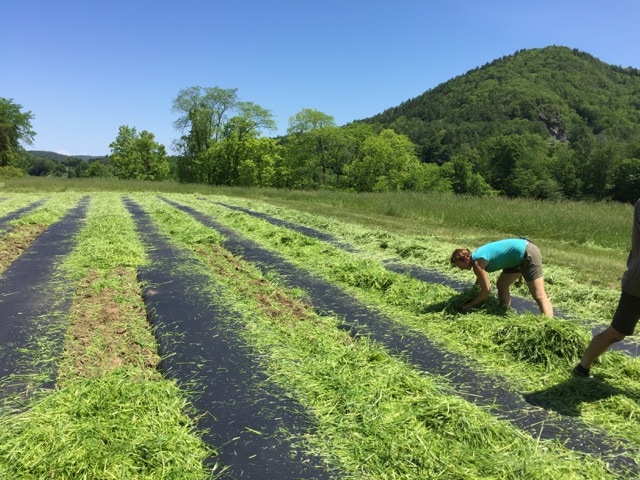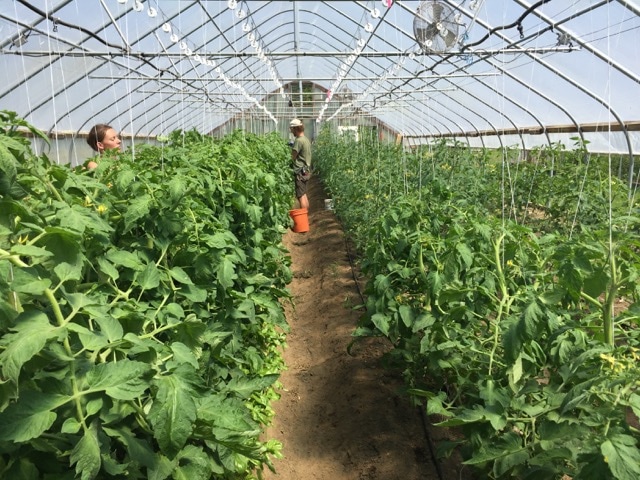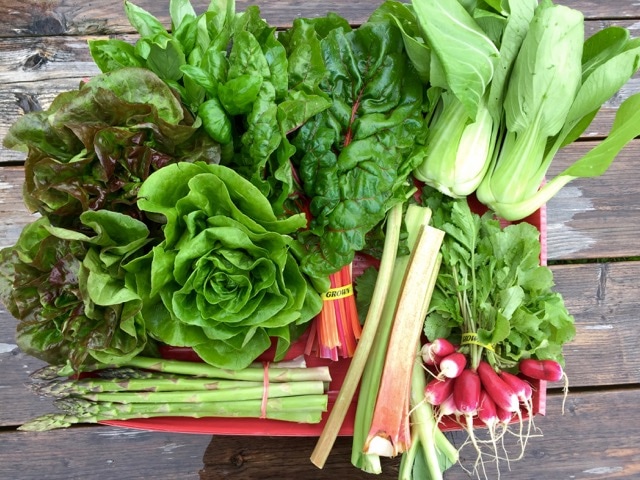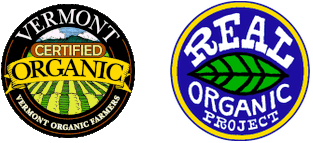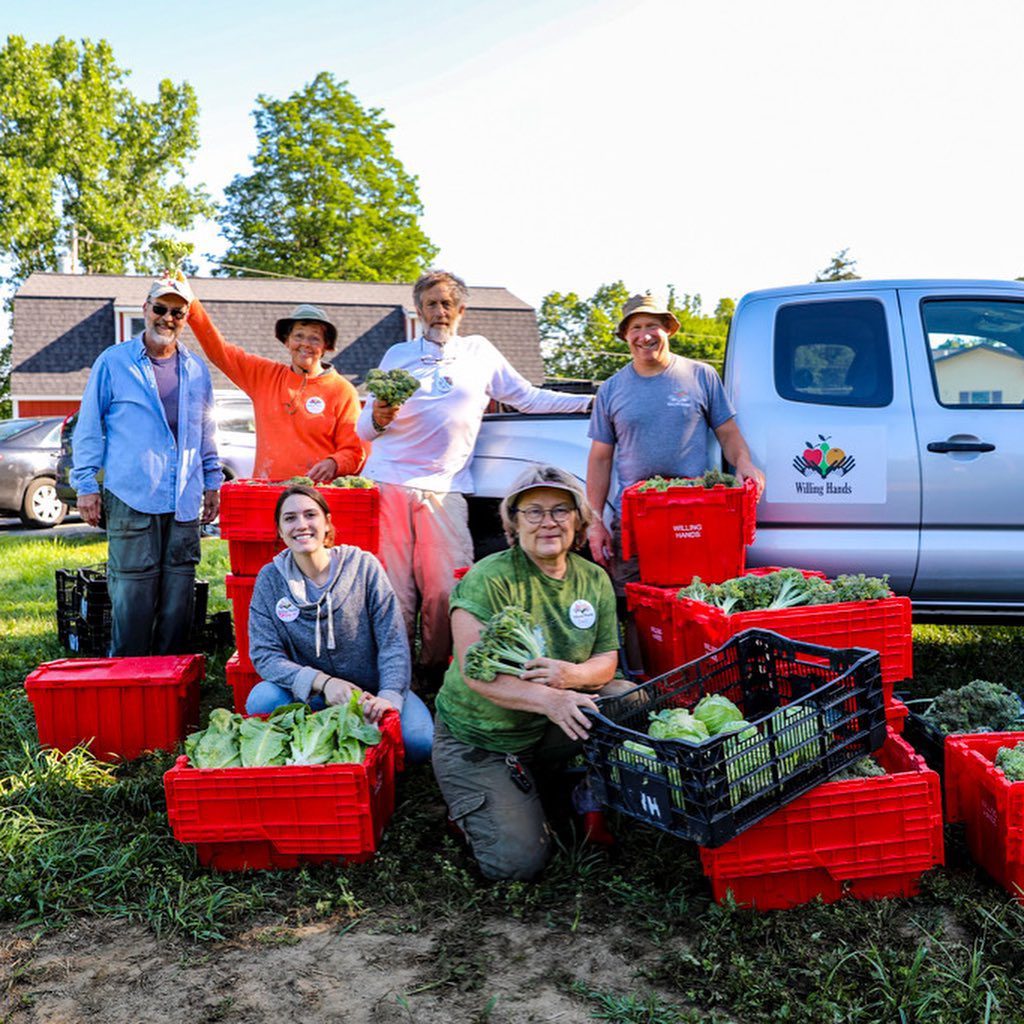 Did you know? In Vermont, 68,590 people are facing hunger - and of them 15,730 are children? (feedingamerica.org) By donating your box while you’re away, you can help bring fresh, healthy food to those facing food insecurity within your community. Here’s How to Donate your box to Willing Hands: 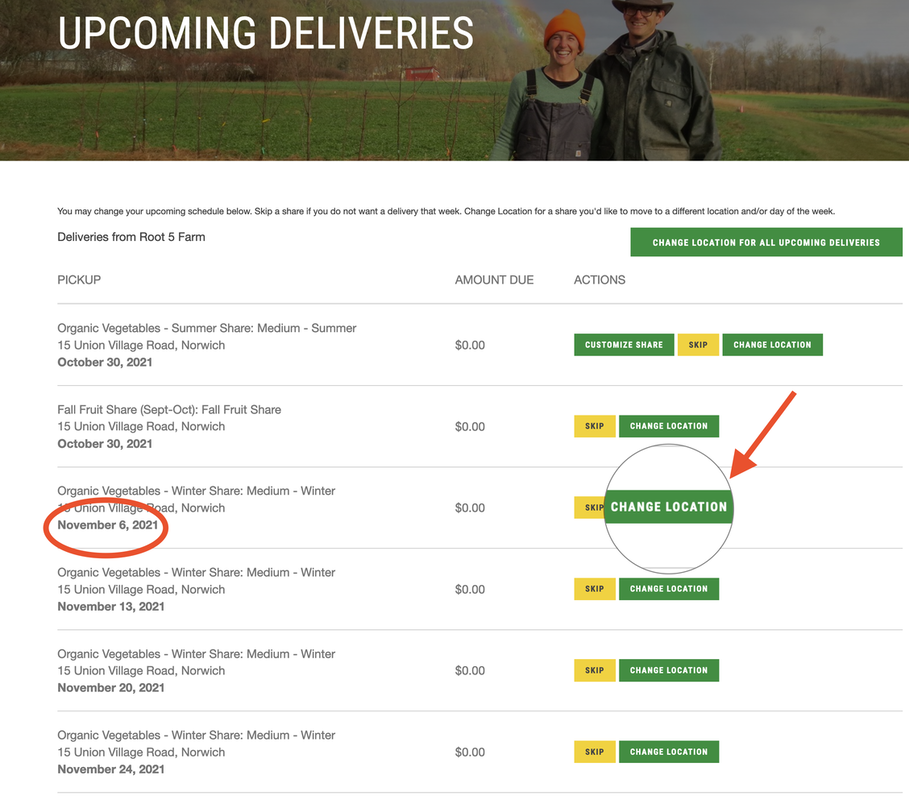 Step Two: Select “change location” for the date you’ll be out of town. Step Three: From the drop down menu, choose “Donate your box to Willing Hands”.
Stop by the Norwich Farmers Market this Saturday 9am-1pm. This will be our first outdoor market of the season and we'll be there rain or shine with fresh spring greens and herbs to kick off the season. We'll also have our delicious oyster and shitake mushrooms, sauerkraut, kimchi, and some hardy plants to get your garden started. Check out this Shabu Shabu recipe, it's easy to adapt with any of the spring vegetables we'll have at market this Saturday. Shabu Shabu is one of Japan’s most popular hot pot dishes. It’s a fun meal since everyone sits around the hot pot at the table, cooks together, and eats while you chat, like fondue! A communal dining experience that inspires good appetites and brings people closer together. Our hoop houses are filling up with gorgeous greens and herbs for early spring farmers' markets and CSA Shares. Growing in these passive solar houses gives us a jump start on spring by protecting crops on frosty nights. Our field plantings will start to size up in late May and we'll turn over these hoop house beds to grow summer tomatoes, cucumbers, and eggplants. Have you heard about our customized CSA Shares?
We're so excited about this new feature for our CSA Shares this season. You can choose all of your favorite vegetables and we'll custom pack your weekly boxes! Get the convenience of fresh, organic, local vegetables of your choice delivered to an Upper Valley location near you. Sign up for your Root 5 Farm CSA Share today! Don't delay, spring shares begin on May 14th! We are so grateful to be able to offer our CSA members local, healthy, delicious add-on products through our partnerships with a growing number of amazing Upper Valley farmers and producers! Each month, we’d like to shine a spotlight on one of these incredible local partners by sharing an interview we conducted with them. This month, meet Randy Robar of Kiss the Cow Farm located in Barnard, VT. Q: What was your process for starting your farm/business? A: We started to go down the path of finding out where food actually comes from, which is a very slippery slope. We found that most stuff in the supermarket is not food and probably not healthy for you. So we thought, ok, we’ll grow our own! We started homesteading, growing a garden, then we got a cow, then meat chickens. Basically we didn’t have a clue. We knew nothing about farming when we started this. I think that’s actually helped us because we didn’t need to unlearn more traditional, industrial ways. We did lots of reading, researching, NOFA workshops and conferences, and visiting farms and listening to people. The organic concept just made sense. We thought, yes of course, there was no other option. We started off on the right foot. Q: Can you explain the relationship you have with the other farmers that you share land with? A: We had our cow in the garage, a few meat birds and some layers, ducks, pigs, we started maple sugaring, and we kept doing more. Very quickly we outgrew our space. We noticed there was a dairy farm sitting unused up the road from us. Concurrent to that, there was a beef farmer looking for space to graze their cows, and a veggie farmer looking for land to start a business. We found out about each other, and decided to band together to rent the space. The family who owned the land liked the idea, but their lawyer did not. Luckily, the Vermont Land Trust stepped in to buy the property and as a group, we leased it from VLT. The initial ideas and ideals we had of working together in a lot of ways never happened. Reality set in but, we still work together. Our most well-known cooperative endeavor is Feast and Field. It started out as our farmers’ market to sell our produce and products, then we added music and now it’s become a whole experience. Hundreds of people turn out every Thursday (in non-covid times) throughout the summer and fall. Q: Can you explain what you mean when you say “farming is a way of life?” A: Really why we do this is to feed our community. We have people calling us up from Texas and California asking to send milk to them. We graciously decline since we’re focused on our community. Our milk is truly rare. It is certified organic, 100% grass-fed, A2 milk. There are seriously few farms in the entire country that offer this and we’re one of them. It’s a unique product and people want it, but we’re not interested in selling to, say, Boston or New York markets. We just wanna feed our neighbors. In our farm store and in our CSA, we offer products from other local farmers and producers. We sell Root 5 stuff (naturally!) along with over 100 other VT farmers and food producers. We are committed to reselling other farmers’ food products because it helps them out and keeps them going and our customers appreciate all the local food choices. I love helping other farmers because I get it. Farming is hard. I’m grateful we are in a position to be able to offer that support. Q: Your farm is a part of WWOOF Int’l. Any fun WWOOF-er stories? A: My wife and I are both educators with masters degrees in education. We love teaching kids about this lifestyle, about farming, feeding a community, doing work and projects that they find meaningful. It’s a lot of fun and one of the benefits of farming. There is very little monetary profit in farming, but we get the payback in different ways, with the appreciation of our community, the smiles of patrons when they get a scoop of ice cream, and by teaching young adults skills and cultivating their love for agriculture. One year we needed more chicken pens to move the birds across the fields. One of the WOOFERS really wanted to get experience building something with tools. When she came, she had never even held a hammer before. So together, she and I built one of these chicken pens. I asked her if she’d enjoyed that project and she said she had. I said, that’s good because we need two pens and YOU are going to build the second one. Every day she would disappear into the shop and with a skill saw, drill, lumber, and a staple gun, she built it all on her own. She was so incredibly proud of herself that she had created this thing. What an amazing experience to give this kid! And she did a good job too, we still use the pen! Q: What are some of your favorite/least favorite jobs on the farm? A: My least favorite would be mucking out the chicken coops in the spring after the chickens have been in them all winter. It’s just a disgusting, backbreaking job. My favorite jobs would be hanging out with cows, and being able to provide opportunities for kids to learn and watching them grow. Q: What has been one of the most surprising things you’ve learned? A: (Laughs) In my previous life, I worked in the corporate world. I got out of that primarily because I was tired of spending my day answering emails, talking on the phone, being in meetings, and managing people. I just wanted to commune with my cows. And wouldn’t you know it, now as a farmer, I’m on email constantly, have lots of phone conversations, and I’m managing people. I call it, “computer farming.” Even on my days off, I’m still farming! Seriously, if anyone has bookkeeping skills, save me! Q: How has the pandemic affected your farm? A: Like everyone that had a CSA or farm store with direct access to customers, we were slammed last year. We were not only normal busy, we were beyond understanding busy. We didn’t have time to cope. Thankfully that’s chilled off now. We were just trying to get through it. We’re one of the lucky ones, our sales actually went up. We had to buy in more cows, because we didn’t have enough milk for people. We couldn’t make ice cream for two months, because we didn’t have the milk. Quarantining the kids coming in to work for the season was an added challenge. The first kid couldn’t get here from down south, because there was no public transportation. We didn’t do any farmers’ markets last year because we didn’t think it was safe. We feel a responsibility to try to keep all of our staff safe and healthy. Q: How’d you get your name? A: I used to read a book called “Kiss the Cow” as part of an educational program at a museum. Plus we do a lot of cow canoodling! It just seemed to fit who we are. Q: What excites/inspires you about what you do? A: Cute cows. I often joke that you can hug a cow, but you can’t hug a cabbage. Q: Anything else you’d like our CSA members to know about you and your farm? A: You are always welcome. Our store is always open, so come on by. We have really cute cows. And we’re looking for a bookkeeper! For bookkeeping inquiries contact Randy at [email protected] Visit their website at https://www.kissthecowfarm.com/ Interview by Hannah Jeffery Community Builder Root 5 Farm Dear Root 5 Farm CSA Members, Now more than ever, we’re reminded of the crucial importance of a resilient, local food system. People need to eat, which means people need to farm. We love to farm, and we're in this community for the long term. At Root 5 Farm we’re ready to do our part to support the safety, calm, and prosperity of our community. Here’s what we’re up to in response to the virus: Our first priority is keeping our small crew healthy. We’re limiting personal social contact, identifying potential exposures, and monitoring ourselves for any signs of illness. We offer paid sick leave, should any of our staff need it. We follow strict food safety protocols as part of our CAPS certification (Community Accreditation for Produce Safety) through the Vermont Vegetable & Berry Association. Our farm is unique in that it's not open to the public for farm stand sales, keeping exposure to possible contamination at a minimum. We’ve also been working to get ahead of the game. As organic vegetable farmers, we've spent the entire winter planning and preparing for our growing season. All the supplies and new materials we think we might need to run the farm over the coming year have already been purchased. We feel as prepared as we possibly can be. We want to recognize that this important work can go on because of YOU, and your early commitment to our farm as a CSA Member. When we have your support, we can focus on the work of growing your food and providing for your family. YOU are the reason this system works, and YOU are the reason we have a hopeful perspective during these uncertain times. Thank you. Please, help us spread the word and help us grow this positive community. Tell your friends and family about the benefits of supporting a local CSA farm today. Ever grateful, Danielle, Benner, & Garhett Financial Support AvailableIf you're feeling financially stressed right now, and you're not sure if you can afford your CSA Share, please know that we're committed to making good food available to all members of our community. We partner with the NOFA-VT Farm Share Program and the Willing Hands Share-a-Share Program to offer discounted or free shares for those with limited income. Check out these programs if you need financial assistance. How Can I Help?If you're in a position to offer help, please consider donating to the NOFA-VT Farm Share Program or the Willing Hands Share-a-Share Program to help ensure that all of our neighbors can access fresh, healthy food during this time of need.
Jump into spring and get a taste of local foods this weekend! Join us this Sunday, April 7th, from 11-3pm, and bring your plate and fork to Flavors of the Valley at Hartford High School in White River Jct. This is the 18th annual celebration of local foods organized by Vital Communities, with over 50 farm and food-related vendors. We're very pleased to be part of this tasting event that brings together Upper Valley chefs, farmers, and specialty food producers. Pre-Buy advanced tickets for entry from 11am-12pm. General admission 12pm-3pm. On Sunday we'll offer a taste of our Powerkraut varieties - original sauerkraut, carrot kraut, caraway kraut, kimchi, and our newest, and very popular, turmeric kraut. You can try a nibble of spicy radish micro greens, or sample something new and unusual with our crisp Belgian endive. We're also harvesting some amazing over-wintered spinach from our hoop houses. It's dark green, sweet, nutty, and oh so delicious! You can pick up a bag at Flavors of the Valley this Sunday, and look for it on the menu at Market Table in Hanover and Ariana's Restaurant in Lyme later this week. Our greenhouse is filling up fast with beautiful vegetable seedlings full of potential and vigor for the new growing season. We can't wait to taste those first buttery leaves of bib lettuce, pungent fresh herbs, and crunchy stalks of asparagus in just a few short weeks! You can taste the flavors all season long! Sign up for your CSA Share now and enjoy a wide variety of fresh, organic vegetables from May until December. New this season, you can choose all of your favorite vegetables and customize your weekly boxes! Root 5 Farm CSA Shares begin on May 14th. Don't delay, sign up today!
Thank you for your CSA membership! We so appreciate you taking this journey with us. Our 2018 CSA season is winding down, half share members have just one more pick up and full share members have two more pick ups, so we want to take this moment to reflect on a season that was full of surprises. Spring came late this year, we had snow and ice on our fields until April 19th! Drought conditions in May during planting time meant irrigating early and often. Some yields suffered on cool-weather crops like peas, leafy greens, and onions. Hot, dry conditions continued through midsummer, producing excellent yields of heat-loving crops like tomatoes, peppers, and cucumbers. The rains began in August, and continued through October. Winter came early with snow fall in October, three big snow events in November, and record low temperatures before Thanksgiving. This made for a fall harvest with a new load of logistical challenges. Our fabulous crew made it all work, as they've done for each of the past six seasons. We're very grateful for the abundant shares we were able to produce with a wide variety of delicious organic vegetables! And we're especially grateful for our new 2-year old family member, Garhett, who arrived at the farm in May! Once again, thank you for your CSA membership and for supporting our local food system. We're looking forward to the next growing season with you, and want you to be the first to know that we're working on a new option for you to customize your CSA shares for the 2019 season. Stay tuned for more information. Sign ups will start this month with a special discount for returning CSA members!
Jump into spring and get a taste of local foods this weekend! Join us on Sunday, 4/8, from 11-3pm, and bring your plate and fork to Flavors of the Valley at Hartford High School in White River Jct. This is the 17th annual celebration of local foods organized by Vital Communities with over 50 farm and food related vendors. We're very pleased to be part of this tasting event that brings together Upper Valley chefs, farmers, and specialty food producers. Pre-buy your tickets to flavors and save! On Sunday we'll offer a taste of our Powerkraut varieties - original sauerkraut, carrot kraut, kimchi, and our newest, and very popular, turmeric kraut. You can snack on our sweet, crunchy carrots, try a nibble of spicy radish micro greens, or sample something new and unusual with our crisp Belgian endive. We'll have bags of carrots, spinach, microgreens, endive, and quarts of Powerkraut for sale. Stock up while you're at Flavors! We're experimenting with growing this crop of Belgian endive in the dark under our greenhouse tables this spring, and they look great! This unique vegetable is crisp and slightly bitter when raw, making it a great addition to brighten up salads this time of year. When cooked, endive's flavor softens into a mellow sweetness- whether steamed, grilled, or braised. It's a versatile ingredient for your early spring kitchen- check out some recipes on our website. Our greenhouse is filling up fast with beautiful vegetable seedlings full of potential and vigor for the new growing season. We can't wait to taste those first buttery leaves of bib lettuce, pungent fresh herbs, and crunchy stalks of asparagus in just a few short weeks! You can taste the flavors all season long! Sign up for your CSA Share now and enjoy a wide variety of fresh, organic vegetables from May until December. Root 5 Farm CSA Shares begin on May 15th! Don't delay, sign up today!
Stop by the Norwich Winter Farmers' Market this Saturday from 9am-1pm at Tracy Hall. You can stock up on 5lb bags of carrots, beets, winter squash, onions, and garlic. We also have a nice crop of Belgian Endive ready for you! Belgian Endive is crisp and slightly bitter when raw, making it a great addition to brighten up salads this time of year. When cooked, endive's sharp flavor softens into a mellow sweetness -- whether steamed, grilled or braised. They're a versatile ingredient for your winter kitchen, check out some recipes on our website. We'll also be offering a taste of our newest batches of kimchi, carrot kraut, and a new recipe we're testing out for turmeric kraut. Come try a taste and pick up a quart of Powerkraut to keep you healthy this winter! See you on Saturday!
Mark your calendar! We have two upcoming events at Root 5 Farm. Open Farm Day this Sunday 10am-1pm, and we're hosting a CSA Potluck Farm Supper on Sunday Sept 10th at 4pm. Stop by the farm this Sunday August 20th for a guided tour of our fields, greenhouses, and pack house. Check our website for directions to the farm. You can taste some unusual varieties we grow, and we'll have fresh vegetables, sauerkraut and kimchi available for purchase. This is a great opportunity to learn more about our organic production methods and see one of your local farms in action! This Open Farm Day is part of a greater statewide event called Vermont Open Farm Week. Check out the full schedule on diginvt.com and set up your VT farm itinerary today! On Sunday September 10th at 4pm, we're hosting a CSA member potluck supper. Bring a dish to share and come to the farm for a walking tour of our fields, greenhouses, and pack house. This is a great opportunity to meet fellow CSA members, share stories, and see all your Fall CSA vegetables growing in the fields. It's time to sign up for Fall CSA Shares! Our fall crops are looking beautiful and we'd love to share this bounty with you! Check out photos on our website to see what you can expect in our Fall Shares. Our shares are diverse and full of fresh greens right through the end of December! We also have Add-on Share options of Pasture-Raised Chicken, Pork, and Beef for the fall. Plus, we're partnering with Scott Farms in Dummerston to bring you Fall Fruit Shares this season. So you can get apples, plums, and other fresh local fruits along with your vegetables each week! Sign up online today! It's rainbow time at the farmers market! We have the full spectrum of colors on display. Our summer crops are abundant and so delicious right now! Come get a taste of ripe heirloom tomatoes, Carmen sweet peppers, Romanesco summer squash, and Ping Tung eggplant! These are unique varieties, hard to find in the grocery store, and only available right now at the height of summer! You'll find us in front of Chapman's in Fairlee on Fridays, 3-6pm, and on Saturday at the Norwich Farmers' Market, 9-1pm.
Earlier this week it was hard to believe that it was the second week in June since Sarah was still wearing her fur-lined arctic hat and full rain gear to stay warm. We were eager for sun after several weeks of working in cold temps and continuous rain, so the past two sunny days have been glorious. It's been amazing to finally dry out and warm up, and the plants are enjoying it too! We immediately got to work cultivating and hoeing the garlic and brussels spouts. We've been cutting our rye cover crop to mulch the pathways of long season crops like sweet potatoes, onions, and kale. This helps retain moisture, reduces weeding, and adds lots of good organic matter back to the soil. Our early tomatoes are looking great! We've been keeping up with weekly pruning and trellising so far, and the plants really thrive with the attention. It's so nice to work on the tomatoes now that they're right at chin level. We're on week four of CSA shares, and we're going strong despite the cold weather. We've had beautiful salad greens, lots of fresh herbs, and tasty asparagus every week. Have you tried making your own salad dressing yet? Here's a tasty salad dressing recipe to get you started. Enjoy!
|
Newsletter Archives
December 2022
|
|
Root 5 Farm
Danielle Allen & Ben Dana 2340 US Route 5 North Fairlee, Vermont 05045 (802) 923-6339 [email protected] [email protected] |
